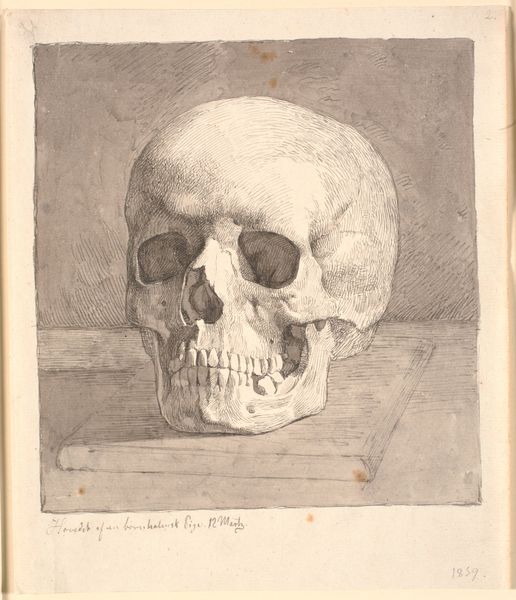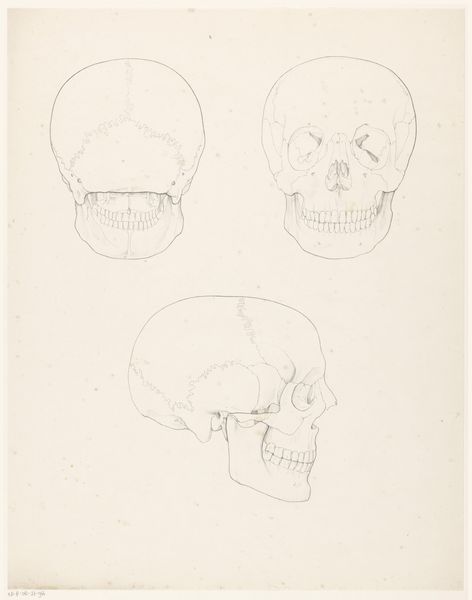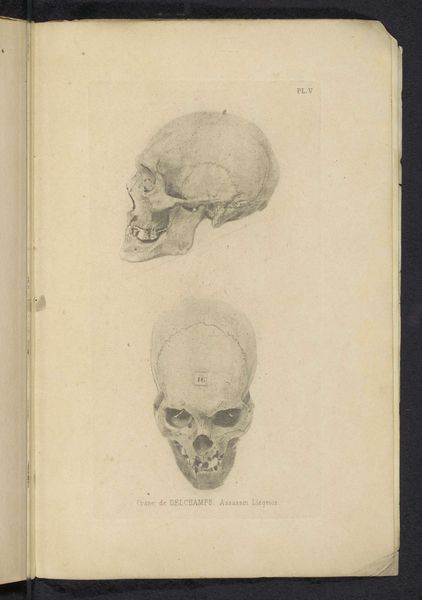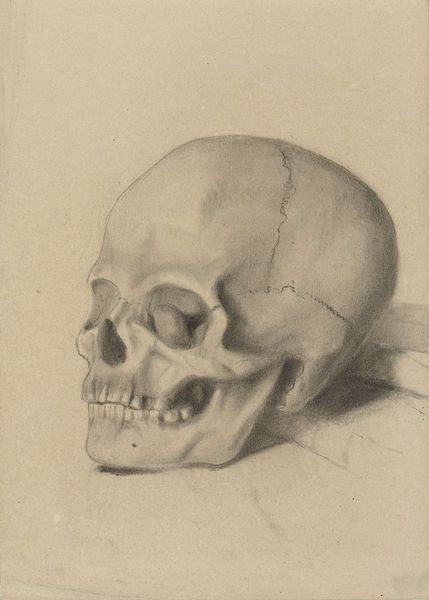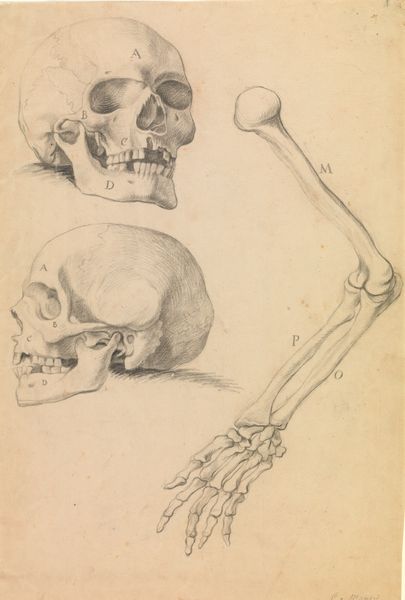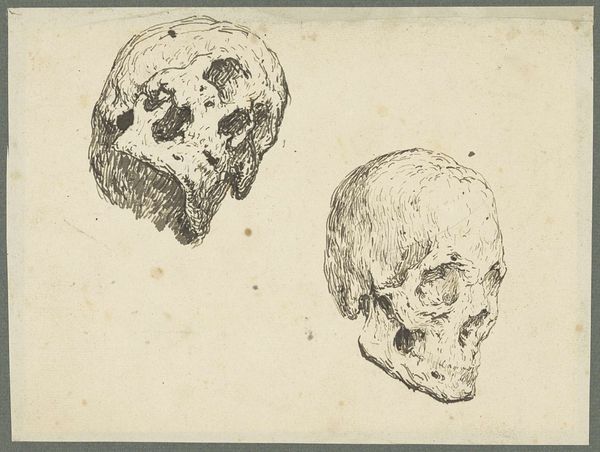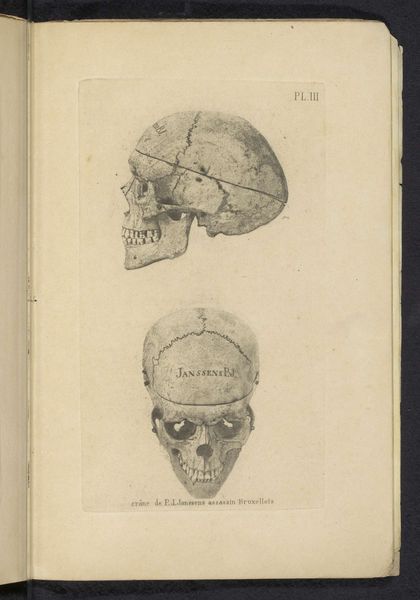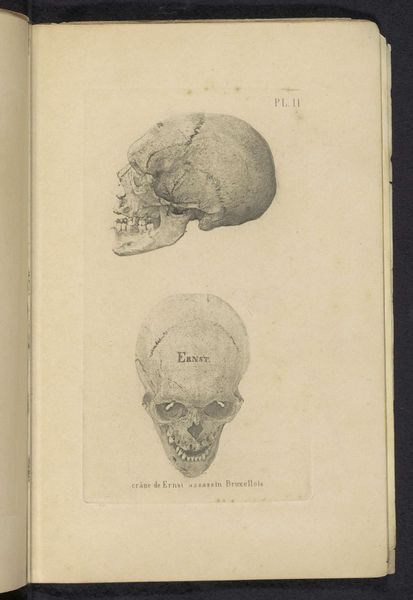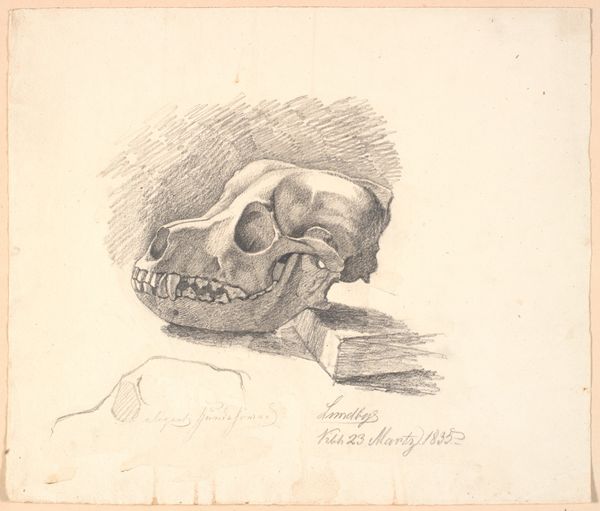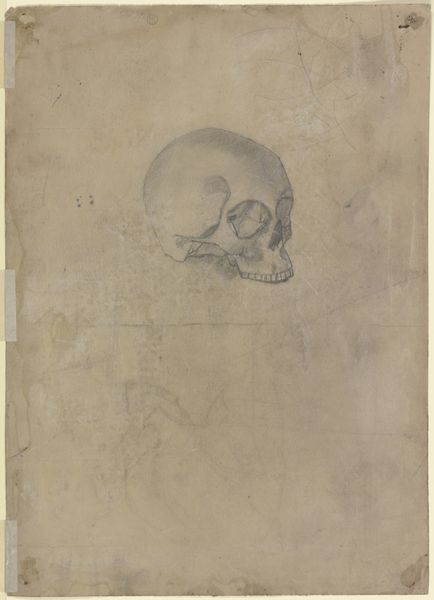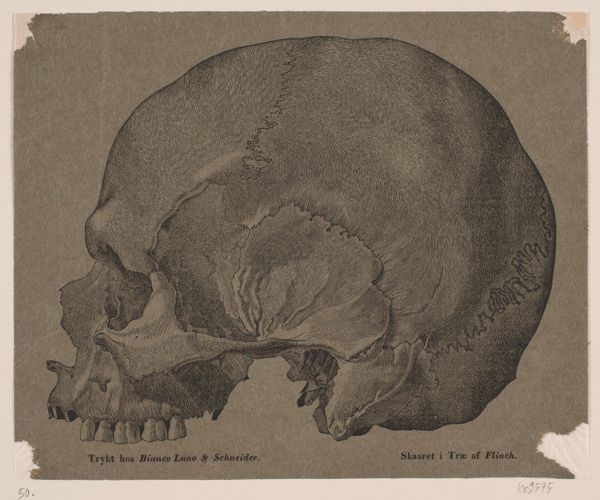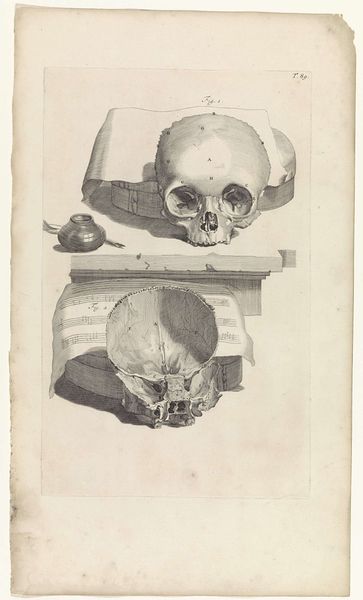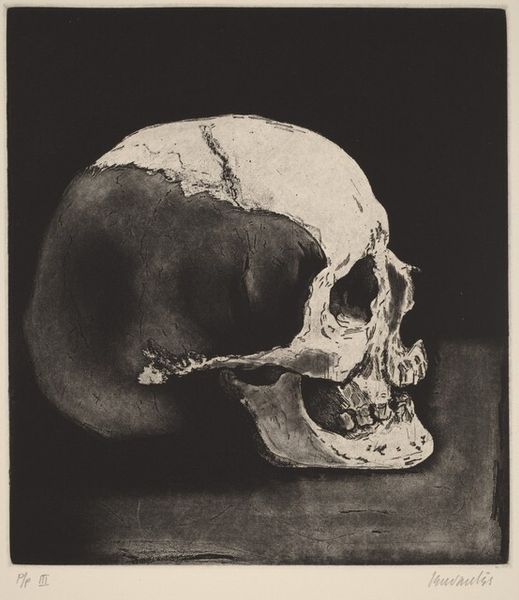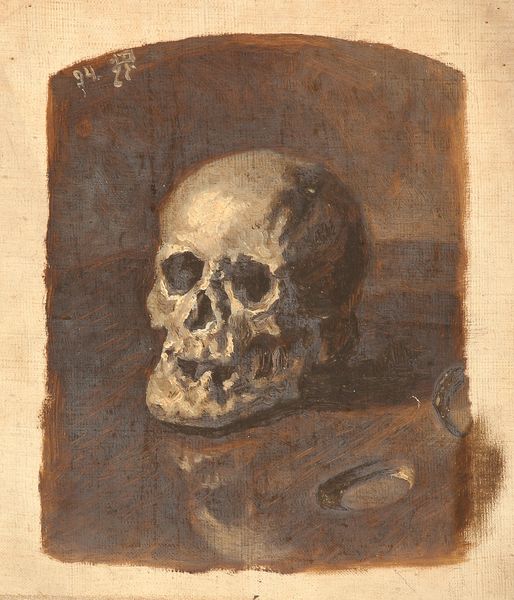
drawing, paper, graphite
#
portrait
#
drawing
#
paper
#
form
#
vanitas
#
line
#
graphite
#
academic-art
#
realism
Dimensions: height 71 mm, width 61 mm
Copyright: Rijks Museum: Open Domain
Isaac Weissenbruch made this drawing of a human skull sometime in the 19th century. Skulls, a frequent image in art history, are a symbol of mortality and vanitas, a reminder of the transience of life. Weissenbruch was Dutch. In the Netherlands, this theme has strong connections to the Calvinist culture and its preoccupation with sin and death. These symbols were particularly popular in the 17th century during the Dutch Golden Age, a time of great economic prosperity, but they continued to appear in art in the 19th century. Weissenbruch might have been inspired by the earlier tradition and the history of Dutch painting, which was being rediscovered and reinterpreted at that time. To understand this work fully, we can look into the history of Dutch art, the religious context of the Netherlands, and the revival of interest in the Golden Age during the 19th century. By exploring these contexts, we can understand how this drawing participates in a long history of cultural and artistic traditions.
Comments
No comments
Be the first to comment and join the conversation on the ultimate creative platform.
